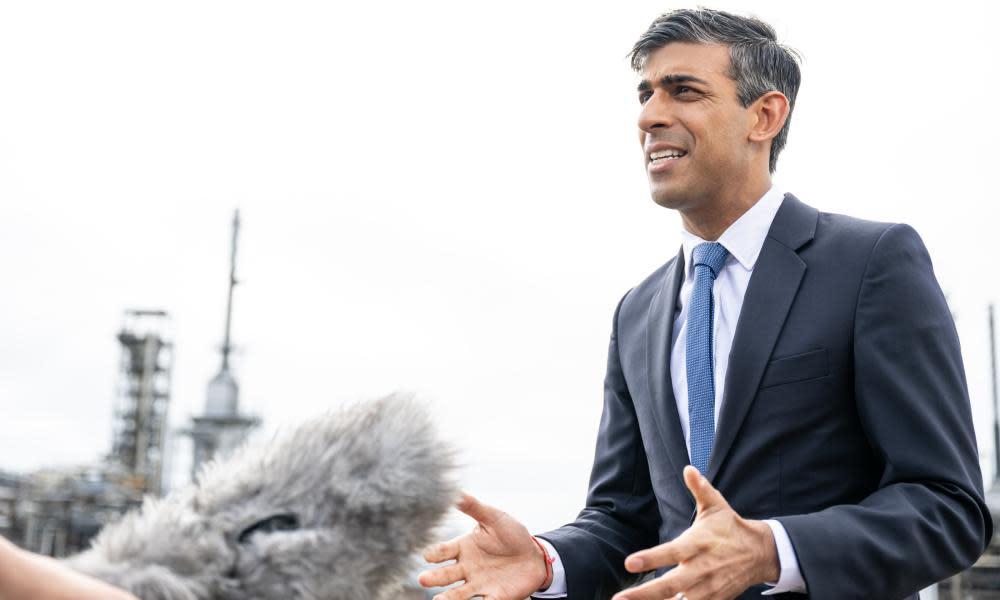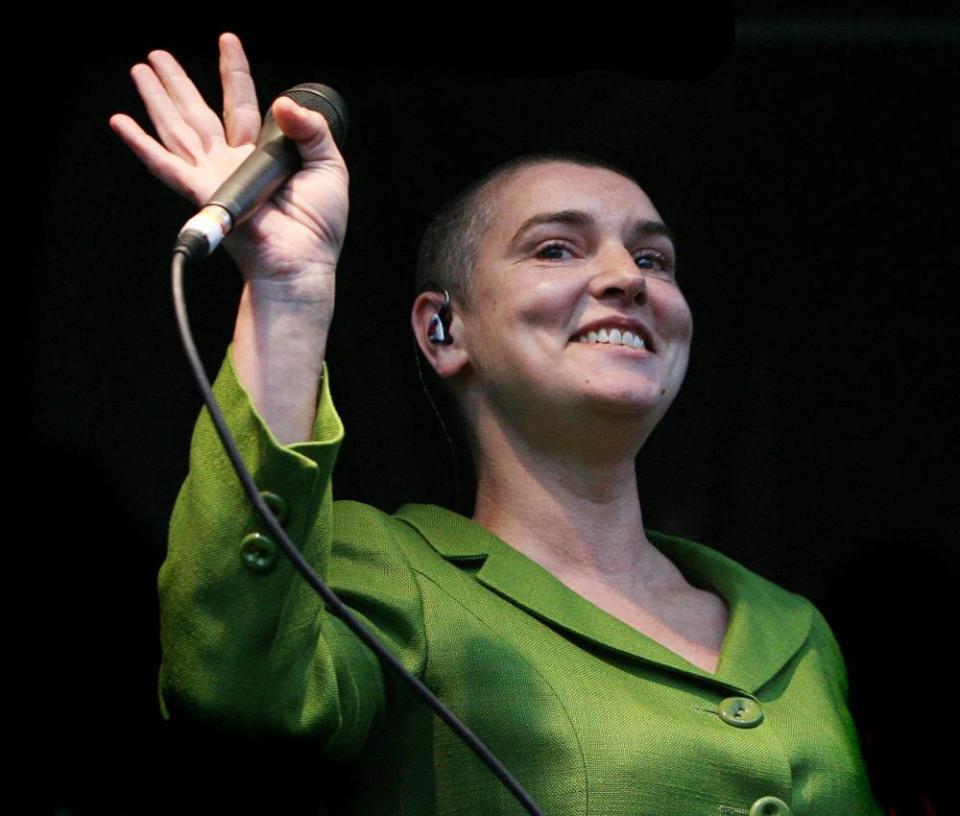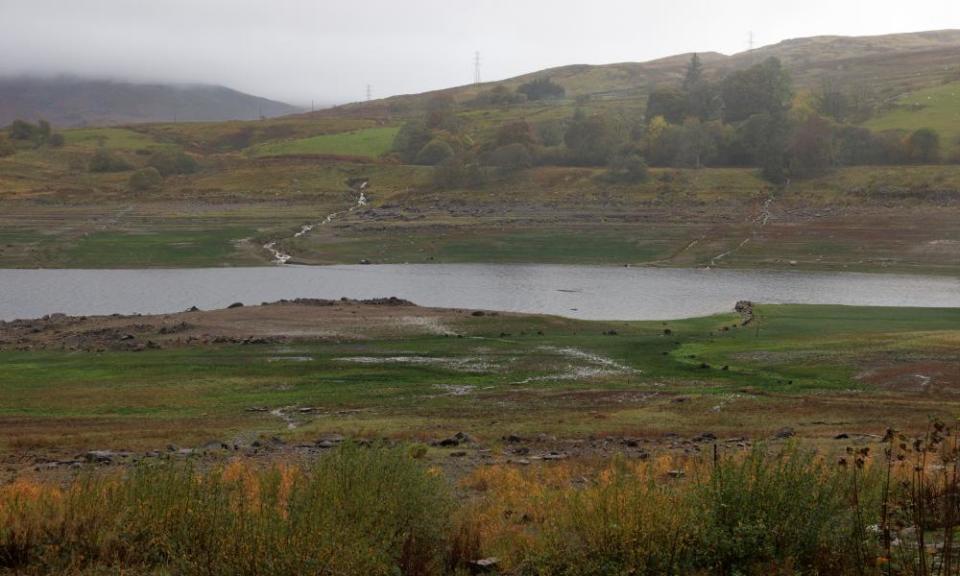The week in audio: Good Morning Scotland; The Ralph McLean Show; Drowned: The Flooding of a Village and more – review

Good Morning Scotland (BBC Radio Scotland) | BBC Sounds
The Ralph McLean Show: Sinéad O’Connor Tribute (BBC Radio Ulster) | BBC Sounds
Drowned: The Flooding of a Village (BBC Radio Cymru) | BBC Sounds
On the Wire (Slack City Radio) | totallyradio.co.uk/Mixcloud
Back to NOW! | Acast
Welcome to the latest instalment of Why Prime Ministers Underestimate Local Radio at Their Peril (episode one was last September, of course, when eight BBC regional stations liquidated Liz Truss, winning a British Press Guild jury prize the following March for their efforts). Rishi Sunak’s turn on Good Morning Scotland was a delightfully spleen-twisting slice of schadenfreude. The clip of him defending his private jet journeys went viral on social media, but the entire five minutes were golden, thanks to host Martin Geissler.
Geissler’s questions were succinct but never spiky, and he let Sunak babble on destructively: “Ban everything… stop people flying, stop people going on holiday!” It reminded me that regional radio is often considered uncool, not bothered about playing the national media’s provocative games, but its combination of cosiness and little ego often makes for great audio. And as the BBC amalgamates regional programming and global radio replaces local news centres with centralised hubs, it’s high time to remind ourselves that we won’t know what we’ve got until it’s gone.
Here’s one example: the best tribute I heard to Sinéad O’Connor this week was on Radio Ulster and lasted two hours. This was on The Ralph McLean Show, where the Northern Irish writer and presenter brought together brilliant archive interviews, songs from every facet of her career and clips from a 2003 Radio 2 documentary McLean had written and produced for Mark Goodier (he winced over it being called Nothing Compares to Her: “I put my hands up and say it’s not a particularly original title”).
Jewels glistened throughout: the first known recording of the 14-year-old O’Connor singing a Barbra Streisand song in a wedding band; her saying how being fed up with singing Nothing Compares 2 U always disappeared when she sang it (“Oh Jesus, why worry about this song, you love it”). We also hear from Björk and Kris Kristofferson, the latter having defended her when she was booed at a 1992 Bob Dylan tribute gig, shortly after ripping up a picture of the pope on Saturday Night Live.

McLean also plays Kristofferson’s song Sister Sinéad, which had its first airing on the 2003 broadcast (its chorus goes: “Maybe she’s crazy and maybe she ain’t/ But so was Picasso and so were the saints”). Wonderfully, Kristofferson recorded it especially for the show on a tape machine borrowed from his neighbour in rural Hawaii, before driving for hours to a post office to send it to Belfast. Full of the joy in O’Connor’s life alongside the hardships, this show was a slow-moving, beautiful memorial.
A shoutout to my two local stations, Radio Wales and Radio Cymru (note to Anglo-Saxons: the latter is a separate Welsh language station which has been running since 1977). The former launches its new arts show this week, presented by the welcoming, sparky novelist and playwright Gary Raymond, while the latter is responsible for my narrative series of the year so far: Drowned: The Flooding of a Village (which came out in April but got lost in the BBC Sounds algorithms). Telling the story of the buildup to the 1965 flooding of the Welsh-speaking village of Capel Celyn to create a reservoir to provide water to Liverpool, then the dramatic event itself and the angry aftermath, journalist Betsan Powys explores both sides of the project with a critical, compassionate eye. Interviewees include Capel Celyn’s old residents, Welsh language activists who planted bombs, and, surprisingly, songwriter and broadcaster Richard Stilgoe, whose father designed the reservoir.

Many regional DJs have also left the BBC in recent months. One is ex-BBC Radio Lancashire DJ Steve Barker, whose leftfield music show On the Wire ran from 1984 to May 2023 (imagine a more experimental John Peel). Now on Slack City Radio on Sunday evenings (and online on totallyradio.com and Mixcloud) last week’s programme whirled together the new Kode9 and Burial single, a gorgeous reissue of a 1993 Japanese synthesiser epic called A Trip to the Bamboo Forest and a mind-bending 30-minute version of Tracy Chapman’s Fast Car by US composer Jim O’Rourke. It’s not for the faint-hearted, but it makes you yearn for the BBC’s days of non-celebrity DJs and more freeform programming.
As I’ve neglected podcasts this week, one palate cleanser to finish: Back to NOW!, which is back for a summer special (full disclosure – I’ve been a guest, rabbiting on about the 12th edition of the Now That’s What I Call Music compilation series, as the show usually dedicates each episode to one of these anthologies). Host Iain McDermott is a civil servant by day, by night a recent finalist on Ken Bruce’s TV version of PopMaster, with a Scottish accent to die for, and here he dissects the Awesome!! pop compilations of the early 1990s with DJ Johnny Kalifornia and journalist Ian Wade. As hours of geeky nostalgia go, it’s tremendous fun.

 Yahoo News
Yahoo News 
